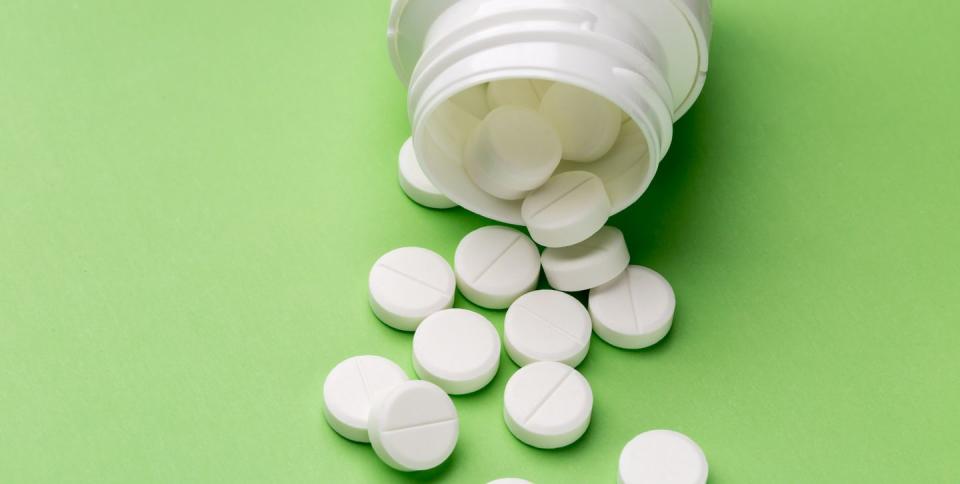This Viral TikTok Claims a DIY Aspirin Face Mask Can Get Rid of Acne, but Is It Legit?

TikTok is flooded with advice on just about everything, from kitchen hacks to fashion fixes to home decor DIYs. But one user is going viral after she posted a video using an aspirin face mask to get rid of her acne.
Mallory Le, a.k.a. @tellyourdogisayhello, says in the caption of her TikTok that an aspirin mask really helped clear up her skin. “I didn’t have to go on accutane again because of this trick,” she wrote.
In the TikTok, Le breaks down how she makes the mask. She takes two tablets of aspirin, breaks them down with a little water, and spreads the goo on her face. She then leaves it on for three minutes, before rinsing it off and patting her face dry with a towel. “Do this every few days,” she wrote, showing off her clear skin.
Plenty of people in the comments raved about this hack. “I’ve been doing this for years as a spot treatment and it’s the only thing I’ve found that will actually clear them overnight,” one wrote. “I loveeee doing this,” another said.
Aspirin is in a group of medications called salicylates. It works by stopping the production of certain substances that causes fever, pain, swelling, and blood clots, and is usually meant to be ingested.
Many aspirin mask fans claim online that the active ingredient in aspirin is a form of salicylic acid, which is in many acne-fighting products. “They’re almost the same but not quite,” says Jamie Alan, Pharm.D., Ph.D., an assistant professor of pharmacology and toxicology at Michigan State University.
Aspirin contains acetylsalicylic acid, which is a synthetic form of salicylic acid, she explains. But they’re not the same, and they don’t do the same thing. “Aspirin is metabolized to salicylic acid but that happens in the liver, not the skin,” Dr. Alan says.
Because there’s “no evidence” to support that aspirin can fight acne when applied topically this way, it is tough to recommend it as a “safe and effective” treatment, says Gary Goldenberg, M.D., an assistant clinical professor of dermatology at the Icahn School of Medicine at Mount Sinai in New York City.
“Aspirin—either oral or topical—is not FDA approved for acne,” points out Shuai Xu, M.D., an assistant professor of dermatology at Northwestern Medicine. “The evidence that it does anything—in mask or topically—for acne is really poor.”
Anecdotally, maybe. But Dr. Goldenberg says you should be aware that you could end up with skin irritation and dryness after using an aspirin mask. “Is there harm? Probably not. But, why risk it if it’s unlikely to do anything?” Dr. Xu adds.
If you’re struggling with pimples, it’s really just best to stick with a mask or products that contain actual salicylic acid, which “has been used in many acne-fighting formulations,” Dr. Goldenberg says. “It helps to remove the superficial layer of the skin, opening pores and allowing comedones to pop. It also has antibacterial properties, killing the bacteria that clog pores and cause acne.”
If you really want to try an aspirin mask anyway, he offers up this advice: “You could try it, but make sure you apply a moisturizer right after in case there’s irritation.” May we suggest one of these excellent moisturizers for acne prone-skin?
Support from readers like you helps us do our best work. Go here to subscribe to Prevention and get 12 FREE gifts. And sign up for our FREE newsletter here for daily health, nutrition, and fitness advice.
You Might Also Like

